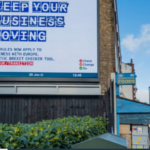Industry leaders are sounding the alarm as the hospitality sector faces a potential crisis, with business rates set to quadruple after the current relief ends on March 31. This dramatic increase could cost the industry an additional £914 million, prompting urgent calls for reform from Chancellor Rachel Reeves in the upcoming budget.
A coalition of 170 hospitality business leaders, including executives from major pub chains like Greene King and JD Wetherspoon, as well as representatives from high street establishments such as Caffè Nero and IHG Hotels, have penned a letter to the chancellor advocating for immediate action. They are urging the government to implement a lower, permanent business rates multiplier specifically for the hospitality sector across all UK nations.
UKHospitality, the industry’s trade body, has emphasized that the upcoming budget represents the government’s “last chance” to avert a significant cost increase that could devastate the sector. Kate Nicholls, chief executive of UKHospitality, warned that without intervention, the sector may face more closures, leading to vacant high streets and a growing number of empty venues.
Impact of Business Rates on Growth
The hospitality industry, which encompasses pubs, restaurants, cafes, and hotels, has benefitted from business rates relief since it was introduced as part of the government’s pandemic response in 2020. However, with this relief set to expire in just over five months, there are mounting concerns regarding the long-term implications of a quadrupling tax burden.
The group of 170 hospitality leaders pointed out that the current cap on business rates relief has hindered expansion efforts, making many venues reluctant to open new locations due to high associated costs. This stifling effect on growth is exacerbated by the perception that business rates are disproportionately high compared to the economic activity generated by the sector.
“The current tax system discourages people from running high street businesses,” the group stated in their letter. “The government should be encouraging growth and investment, not making it harder for businesses to operate.”
Threat to High Streets and Local Economies
The looming threat to the hospitality sector comes at a time when the government is striving to rejuvenate high streets and foster local community investment. Nicholls argued that without meaningful changes to business rates, the government risks undermining its own growth objectives.
“Further closures will be detrimental to the government’s growth agenda and impede our sector’s ability to create vibrant places for people to live, work, and invest,” she said. “If we want to retain vital investment, job creation, and the regeneration of our high streets, the chancellor must introduce a lower level of business rates for hospitality in the budget.”
Other trade organizations, including the British Retail Consortium, have echoed these sentiments, asserting that high business rates contribute to an alarming wave of shop closures and job losses, inflicting both social and economic costs on high streets across the UK.
A Call for Fair Taxation
As the government navigates increasing fiscal pressures, the hospitality sector argues that rebalancing the tax burden could provide a viable solution. UKHospitality and other industry leaders believe the current system unfairly penalizes hospitality businesses, which pay a disproportionate share of business rates relative to their economic activity.
By reforming the business rates system, they argue, the government could support long-term investment in the sector, create jobs, and rejuvenate high streets. With the spring deadline approaching, the industry is urging Chancellor Reeves to take decisive action in the upcoming budget to avert a significant crisis in one of the UK’s most vital sectors.









